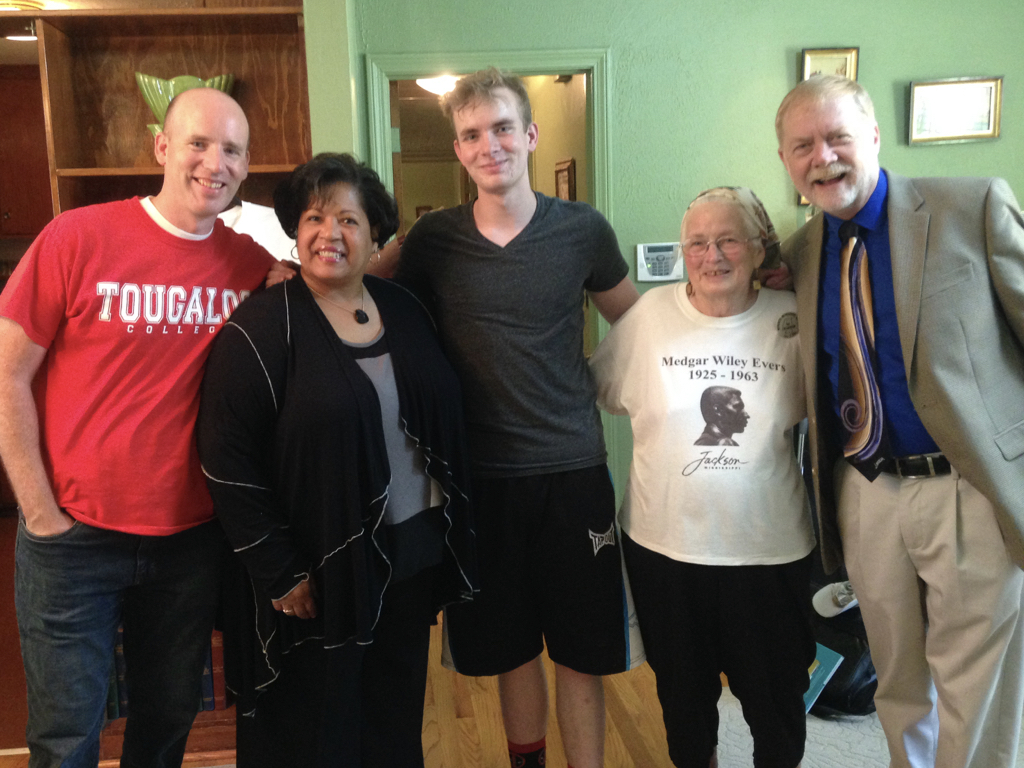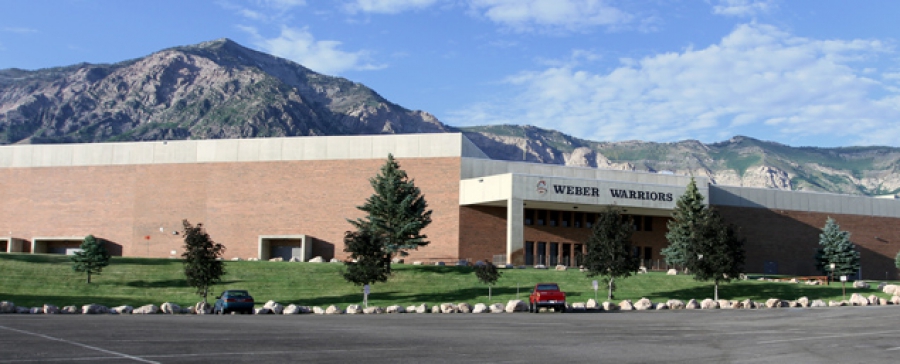It took us over a year to arrange the moment and the minutes felt like hours when the elevator bell rang and the doors silently slid open.
I first met Myrlie Evers at the Atlanta airport in 2011. It was the briefest of encounters which I know she doesn’t remember. We were both heading to Jackson, Mississippi for the 50th Anniversary of the Freedom Rides and the unveiling of a historical marker at the Evers home on Margaret Walker Alexander Avenue.
Mrs. Evers is an imposing figure. Her eyes lock in on you when she talks. And when she talks… you listen. It’s a voice from the past. Slow and deliberate. At the Evers home she stood at the podium and said a few brief words. Yes, there were other speakers but people came to hear the widow of Medgar Evers. Moments later the crowd would surge around her. I was able to position my mother, Joan Trumpauer Mulholland, for a photo with her. Mrs. Evers recognized her, grabbed her arm as if to say, “We’ll make it out of this,” smiled, thanked Joan for her work in the Movement and was ushered off.
Two years later we held a screening of “An Ordinary Hero” at the Old Capitol building in Jackson. It was one of the worst summer storm I had ever been in. The raindrops were huge and came down with such force that they splashed right back up, soaking your pants. We weren’t even certain if anyone would show up but the building was full and in the back sat Reena Evers, Medgar and Myrlie’s daughter.

You have to understand something. In my mother’s house it was about Medgar. Sure, we knew about Martin and Malcolm but when my mother’s civil rights friends would come by the conversation always drifted back to Mississippi and Medgar was a part of that. So, to meet and talk with Medgar’s daughter was something special for me. Here was a child of a Civil Rights Leader. Of course, I knew other activists’ kids but this, for me, was different. We were no longer kids. We were adults with kids and had a broader perspective about what our parents did and were both trying to preserve that memory.
Reena and I became fast friends. We speak frequently now. During the summer of 2016 I was able to meet up with her at the Evers home with my mother, son and Jerry Mitchell who is the investigative reporter that brought Medgar’s killer and dozens of other klansmen to justice. She shared with me the story about the night her father was killed as we stood in the spot where he was shot. She’s told this story hundreds of times and I know that it gets harder and harder every time but it needs to be known.

Mrs. Evers was once the most powerful black woman in America and there we sat just looking at each other. Silence. It was our second day of interviews and we were both mentally and emotionally exhausted. Mrs. Myrlie Evers finally breaks the stalemate,”You’re cruel.” I don’t take the bait. She laughs and says to my cameraman, “He didn’t even budge!”
She compliments me, “I’ve done hundreds of interviews but you are one of the best,” and I know she means it but I also know the question I came to ask. It wasn’t the hardest question for her to answer (she later admitted that there were memories she thought she safely packed away in a box and put it in the closet) but it would be the most telling.
I take a deep breath, “Who killed Medgar Evers?”
Mrs. Evers looks me straight in the eyes. There’s still a fire burning for the struggle even at 84 years old, “The system killed Medgar. Beckwith simply pulled the trigger.”





1 Comment